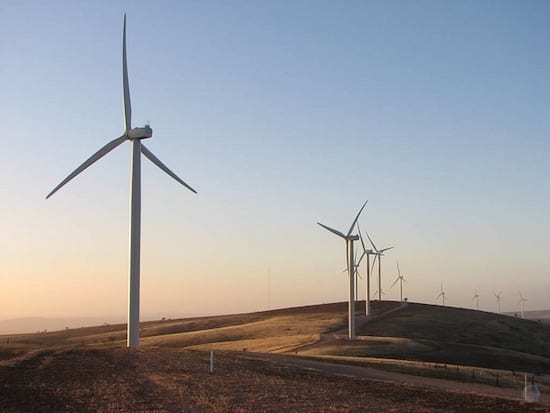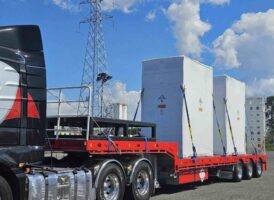Listed renewable energy developer Tilt Renewables says it has added three Victoria big battery projects to its development portfolio as it considers different options to provide its own “firming” capacity is the overall market fails to deliver efficient options.
The three Victoria battery proposals – although not invidiually named – would amount to a total of 150MW of capacity and 300MWh of storage, ands to the smaller proposed Snowtown battery which is sized at around 20MW/42MWh.
An investment decision is expected on one of the big battery projects in the current financial year – which for Tilt began on April 1 – and comes as Tilt also reveals that it is looking at “thermal options” such as dual-fuelled peaking plants as part of its firming strategy.
Tilt is just one of a number of large scale renewable energy developers looking to provide their own firming strategy as the Australian grid increases its renewable share and the cost of contracting from other commercial providers risks rising.
Infigen Enegy and Nexif Energy have also invested in both grid scale batteries and more recently peaking power plants to increase their ability to provide “firm power” to consumers, although in the case of Infigen this is primarily targeted at the C&I market. That part of the market is not yet a high priority for Tilt.
Tilt also revealed that it is looking at hydrogen storage as well -potentially storing excess power from its extensive portfolio of wind farms and then burning the fuel to provide firming power.
“We know we can make it (hydrogen). It’s that not hard,” says CEO Deion Campbell at an analysts briefing marking the company’s full year results.
“But it’s not cheap,” he said. The round trip efficiency of hydrogen meant it still made better sense to install a battery. “I suspect our place in that market is to provide electricity for someone who needs it for their electrolyser.”
Tilt is currently building the 336MW Dundonnell wind farm in Victoria – featuring the biggest rotors yet installed in Australia (95 metres) which it expects to be completed later this year (it is currently producing at a “hold point” of 112MW and around two thirds of the 80 turbines have now been installed.
The company also has development projects at Rye Park (400MW) and Liverpool Plains (1,000MW) in NSW, but at both it is currently seeking amendments to allow for higher tip heights to cater for new more efficient turbines.
Meanwhile, Tilt says an automated trading system installed at the Snowtown 1, Dundonnell and Salt Creek wind farms is proving highly valuable, savings “hundreds of thousands” of dollar in the latest period by helping the wind farms dodge negative pricing events and high FCAS costs.
The AMS technology is backed by actor and former California governor Arnold Schwarzenegger. “It has meant a production decrease at Snowtown (which operates exclusively in the merchant market), but the average price has gone up,” Campbell says.
He said wind projects were more economically viable than solar, and that would could continue until solar and battery storage turned the tables. Tilt had been considering a solar farm at its Snowtown wind complex as part of the battery upgrade, but has previously discarded the solar option.
Tilt experienced a 15 per cent fall in revenue in the last financial year to $128 million, mostly the result of the sale of the Snowtown 2 wind farm, its biggest operating asset. Tilt said it produced 1,835GWh, about 5 per cent ahead of what would normally be expected, at an average capacity factor of 37 per cent, notwithstanding constraints caused by the South Australia grid’s “islanding” in February.
Its pre-tax profit forecasts for the coming year range between $80 million and $95 million, compared to $117 million in the last financial year, due to the uncertainty about Australian wholesale market prices, to which Dundonnell will be exposed until it begins its contracts with Snowy Hydro, Aldi and the Victoria government.
The company’s large scale certificates are mostly contracted under PPA or forward sales contracts at an average price of low to mid $20/MWh.











